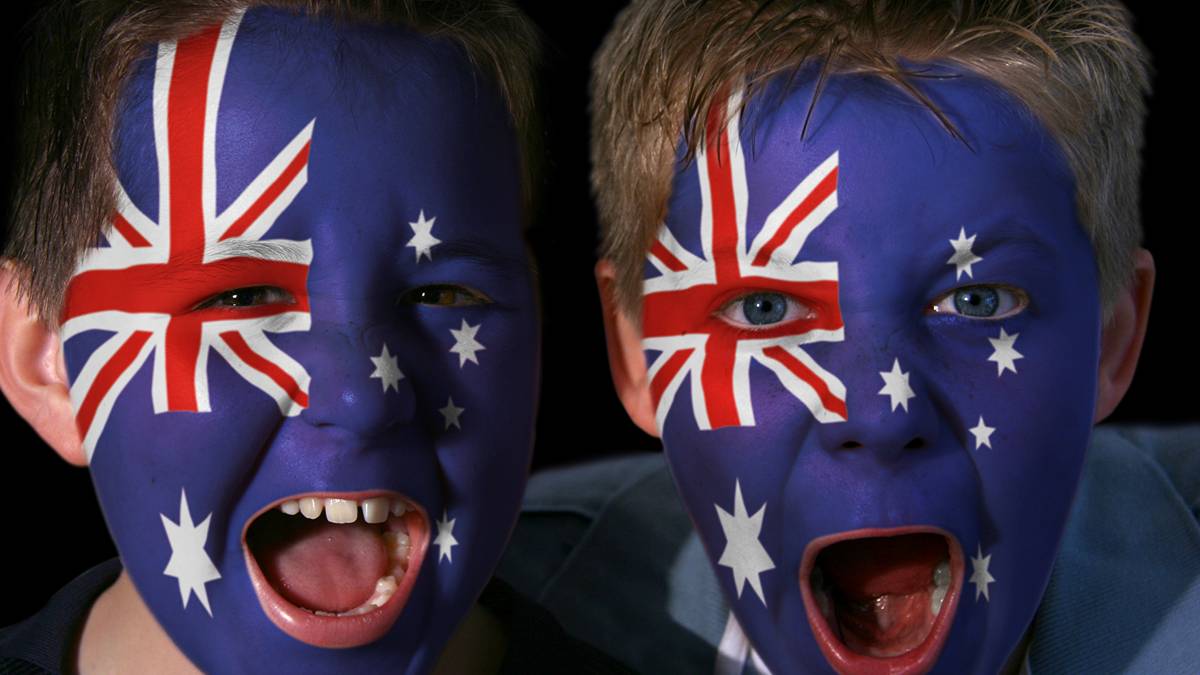Aussie researchers and ASX biotechs driving paediatric drug breakthroughs
ASX biotechs have become well-known for paediatric drug discovery with several life-altering treatments exported to the world.

Stockhead
Don't miss out on the headlines from Stockhead. Followed categories will be added to My News.
Australia has become well-known for its paediatric drug discovery with several life-altering treatments
CSL is a global leader in developing therapies for children with haemophilia and other serious blood disorders
Neurotech International is at forefront of developing cannabinoid-derived therapies for paediatric neurological disorders
Australia may lack the size and funding of larger global biotech hubs, but it consistently punches above its weight in paediatric drug discovery.
From life-altering treatments for rare genetic conditions to vaccines that have reshaped public health, Aussie researchers and ASX-listed companies have and continue to deliver breakthroughs improving and in some cases saving young lives globally.
Among these advancements is Australia’s largest biotech CSL (ASX:CSL), which has become a global leader in developing therapies for children with haemophilia and other serious blood disorders.
Its paediatric haemophilia products — including Afstyla and Hemlibra — allow young patients to live more freely and safely.
CSL also played a pivotal role in bringing Gardasil to the world – the revolutionary human papillomavirus (HPV) vaccine co-developed by former Australian of the Year Professor Ian Frazer at the University of Queensland.
The vaccine is helping to protect millions of girls and boys from HPV-related cancers.
In the 1990s Dr Sandra Anderson and colleagues at Sydney's Royal Prince Alfred Hospital (RPAH) started research into how inhaled mannitol can be used to diagnose asthma.
Their work resulted in development of two new pharmaceutical products:
• Aridol – to identify bronchial hyperresponsiveness and assist in asthma diagnosis.
• Bronchitol – to treat patients with bronchiectasis and cystic fibrosis (CF) by helping clear mucus from their lungs.
In 2001 Pharmaxis now Syntara (ASX:SNT) licensed patents for respiratory products from the Central Sydney Area Health Service (which included RPAH).
Pharmaxis funded later stage clinical trials necessary to get Aridol and Bronchitol, which are now available world-wide, approved. Its shares peaked in 2007 at over $4 a share – for a roughly $800 million market cap – mainly on its Bronchitol hopes.
The company announced sale of its mannitol respiratory unit, which included Aridol and Bronchitol, in October 2023 along with its rebrand to Syntara and change of focus to haematological malignancies.
On the ASX, several healthcare players are cooking up the next-gen of paediatric therapeutics.
Neuren targets various rare diseases
In 2023 Neuren Pharmaceuticals (ASX:NEU) became the darling of the Aussie bourse after its US partner Acadia Pharmaceuticals secured US Food and Drug Administration (FDA) approval for trofinetide to treat Rett syndrome.
Marketed as Daybue, it is the first drug to treat the rare neurological disorder which emerges in infancy and is a profoundly debilitating neurological condition affecting predominately girls.
And Neuren hasn’t stopped there. It’s also advancing NNZ-2591 in clinical trials for a suite of other rare paediatric syndromes – including Angelman, Phelan-McDermid, and Pitt-Hopkins — for which there are currently no approved treatments options.
Neuren is also developing NNZ-2591 to treat neonatal hypoxic-ischemic encephalopathy (HIE).
"HIE is a devastating type of brain injury caused when a baby’s brain does not receive enough oxygen or blood flow before or shortly after birth," CEO and managing director Jon Pilcher told Stockhead.
"It is one of the leading causes of neonatal death and neurodevelopmental disability.
He said Neuren aimed to provide a highly differentiated form of treatment continuing beyond the neonatal intensive care unit to target the long-term outcomes for these children.
"Neuren’s whole business is aimed at trying to improve the lives of the children and their families that are so impacted by all of these conditions," he said.
"The whole team is highly motivated by that mission, building on scientific foundations from Australia and New Zealand."
Argenica Therapeutics (ASX:AGN) has been targeting neonatal HIE for nearly a decade, alongside other acute neurological conditions such as stroke and traumatic brain injury, with its novel therapeutics aimed at reducing brain tissue death.
Its first published paper out of the Perron Institute in Western Australia was in 2018. The study was run by Dr Adam Edwards, who leads Argenica's preclinical neonatal HIE program.
Both Argenica’s therapeutic candidates ARG-006 and ARG-007 are being investigated for their respective safety and efficacy profiles in HIE, offering different therapeutic options for the treatment of the condition.
The FDA has granted both ARG-006 and ARG-007 ODD and Rare Paediatric Disease Designations (RPDD), qualifying Argenica for significant incentives.
Neurotech tackles paediatric neuro disorders
Neurotech International (ASX:NTI) is at the forefront of developing cannabinoid-derived therapies for paediatric neurological disorders, led by its proprietary oral formulation, NTI164.
Derived from a unique cannabis strain with ultra-low THC (
Following the path of successful companies like Neuren, Neurotech is advancing treatments for Rett syndrome, having completed a phase I/II trial with promising results and an extension study currently underway.
NTI164 has been granted orphan drug designation (ODD) by both the US FDA and the European Commission, reinforcing its potential as a differentiated therapy in this rare disease.
Beyond Rett, Neurotech has completed multiple paediatric clinical programs with NTI164, including:
• A phase I/II and phase II/III trial in Autism Spectrum Disorder (ASD)
• Phase I/II trials in PANDAS/PANS (Paediatric Autoimmune Neuropsychiatric Disorders and Acute-Onset Neuropsychiatric Syndrome)
"Neurotech is redefining the potential of cannabinoid-derived therapies in paediatric neurology," newly appointed CEO and managing director Dr Anthony Filippis told Stockhead.
"With NTI164, we’re not just targeting symptoms, we’re aiming to shift the treatment paradigm for conditions like Rett syndrome, ASD, and PANDAS/PANS.
"The orphan drug designations in the US and Europe affirm the unique promise of our approach, and we’re committed to advancing NTI164 towards approval and access for the families who need it most."
Dimerix tackles leading cause of kidney failure in children
Dimerix (ASX:DXB) is focused on the rare kidney disease focal segmental glomerulosclerosis (FSGS) with its lead phase III drug candidate DMX-200.
CEO and managing director Dr Nina Webster told Stockhead FSGS affects both adults and children damaging filtering units of the kidneys, leading to permanent damage and eventual organ failure.
“FSGS is one of the leading causes of kidney failure in children, with 20% of all presentations of nephrotic syndrome in paediatric patients caused by the disease,” she said.
“This is a disease for which there are no treatments available anywhere in the world and 60% of those who do get a transplant get reoccurring disease in the transplanted kidney.
“This is a very poor prognosis and in particular for children who will live with life-long dialysis.”
Dimerix’s phase III study of lead drug DMX-200 in FSGS is titled Angiotensin II Type 1 Receptor (AT1R) & Chemokine Receptor 2 (CCR2) Targets for Inflammatory Nephrosis – or ACTION3 for short.
The second interim analysis of its ACTION3 trial is forecast in around mid-CY25.
DMX-200 has been granted ODD in the US and Europe, as well as the equivalent Innovative Licensing and Access Pathway (ILAP) designation in the UK.
Mesoblast gains world-first approval for treatment
Mesoblast (ASX:MSB) has developed Ryoncil (remestemcel-L) for the treatment of steroid-refractory acute graft versus host disease (SR-aGvHD) in paediatric patients two months and older, which is the first FDA approved mesenchymal stromal cell (MSC) therapy.
Resulting from bone marrow transplants, GvHD is a life-threatening condition with high mortality rates.
Mesoblast said in the US about 10,000 patients undergo a bone marrow transplant annually with donated tissue, 1500 of whom are children.
About half of them will develop GvHD and 50% of these won’t respond to steroids.
Ryoncil applies to patients resistant to steroids, the standard-of-care treatment.
Mesoblast is also targeting the children’s disorder hypoplastic left heart syndrome, for which it has rare paediatric disease designation from the US FDA for its allogeneic cell therapy Revascor.
At Stockhead, we tell it like it is. While Neurotech International and Dimerix are Stockhead advertisers, the companies did not sponsor this article.
Originally published as Aussie researchers and ASX biotechs driving paediatric drug breakthroughs






